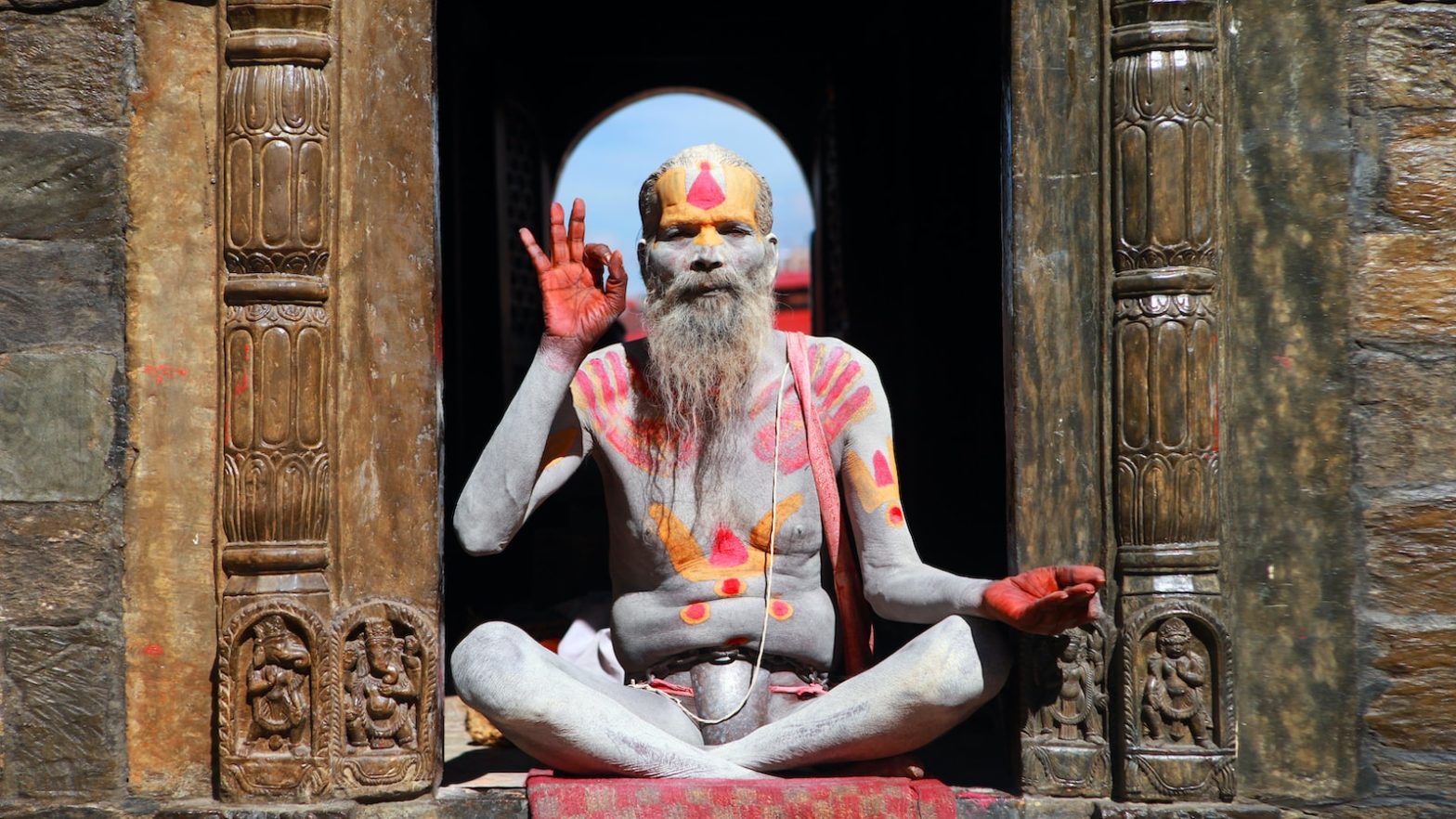Table of Contents
How Long Do Monks Meditate?
The practice of meditation is one that has been around since the time of Buddha, and in today’s fast-paced world people are looking for more information on how long it takes to reach enlightenment.
We will explore what life is like as a monk and I will provide tips and examples on how to start your own spiritual journey by following in the footsteps of these remarkable individuals.
How long do monks meditate?
Monks typically meditate for several hours each day, rising very early in the morning and meditate throughout the day – and again before bedtime. Some monks may meditate 6-10 times a day for up to 8-10 hours all together.
The practice of meditation is an ancient one that has been practiced by monks for centuries. The goal of meditation is to focus the mind on a single object or thought in order to achieve a state of inner peace and stillness.
- How Long Do Monks Meditate?
- How long do monks meditate?
- How often do buddhist meditate?
- How long do buddhist monks meditate daily?
- How many hours a day do monks meditate?
- What is the meditation of monks like?
- What is the life of a monk?
- Why do Buddhists spend a lot of time in meditation?
- What time do buddhist monks go to sleep?
- How do monks sleep?
- Why do monks sleep on the floor?
- How Long Do Monks Sleep?
- How do monks wake up?
- Does the Dalai Lama meditate?
- How do you know if meditation is working?
- What happens if I meditate everyday?
- Is White Noise good for meditation?
- Let's do it!
How often do buddhist meditate?
Buddhist meditate often – around 9 times a day: the practice contains Morning and Evening Services a day, each has two periods of meditation and a walking meditation in between.
There Services includes the recitation of Rules for Meditation, an ancient texture written by the great master and there are also Retreat Sessions, Zazen, Dharma talk and chanting sessions throughout the day.
How long do buddhist monks meditate daily?
Meditations are approximately 20 -45 minutes long and the walking meditation in between is about about 5 – 10 minutes long.
When meditating, individuals may focus on their breath or a mantra, and work to clear their thoughts. Meditation can be done either sitting or standing, and can be done alone or in a group setting. Here you can check out the schedule of a real Zen Monastery.
How many hours a day do monks meditate?
In general, Zen Buddhists typically meditate for 8 to 10 hours daily all together. The practice of meditation is an important part of Zen Buddhism, and is often done in order to promote mindfulness and peace of mind.
What is the meditation of monks like?
What do monks do when they meditate?
The meditation of monks is a type of mindfulness meditation that is practiced by Buddhist monks. This practice involves focusing on the breath and being aware of thoughts and sensations without judgment.
Benefits of Meditation
The benefits of the meditation of monks include improved mental well-being, increased focus and concentration, reduced stress and anxiety, and enhanced self-awareness.
Long-Term Meditation and Health
There is a growing body of scientific evidence that suggests that long-term meditation can have a significant impact on our health. Studies of long-term meditators who are engaged in busy professional lives have observed significant reductions in healthcare costs and expenditures. In a retrospective study, reduced insurance costs of 50% were averaged over all disease categories. Meditation has also been found to be helpful in keeping the mind clear and relieving pain.
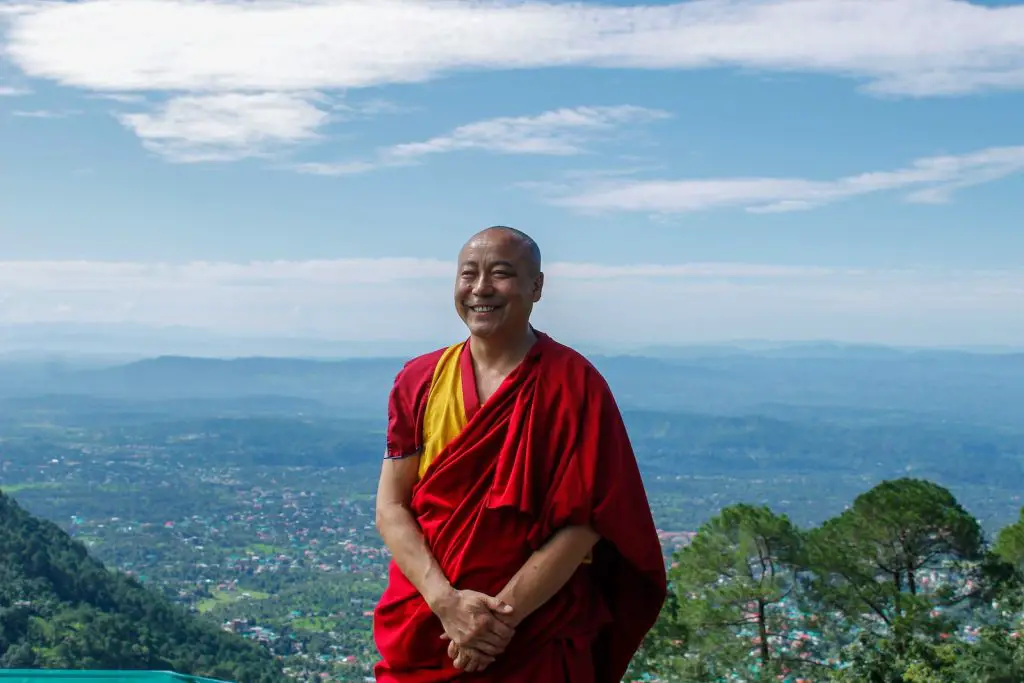
Meditation can help you
- Reduce stress and anxiety
- Improve your mood and emotional well-being
- Practicing patience and kindfulness
- Improve your focus and concentration
- Sleep better
- Become more aware of your thoughts and feelings, which can lead to better self-awareness and self-esteem
- Manage pain better by reducing the perception of pain signals sent to the brain
- De-cluttering your mind and being present in every moment of your life
How to get started with meditation
If you are interested in trying the meditation of monks, there are a few things you can do to get started. First, find a comfortable place to sit or recline in. Next, focus your attention on your breath and simply observe your thoughts and sensations without judgment. You may also want to try using a mantra or other form of guidance during your practice.
What is the life of a monk?
The life of a monk is one of simplicity, prayer and service. Monks live in monasteries and take vows of poverty, chastity and obedience. They spend their days praying, studying scripture and performing other religious duties.
Monks typically follow a strict daily schedule that includes several hours of prayer. They may also have set times for study, work and recreation. This schedule is meant to provide structure for their day and help them stay focused on their spiritual goals.
What is the day of a monk like?
Monks who follow the Zen Buddhist tradition typically live in monasteries, where they spend their days practicing meditation, studying Buddhist texts, and performing other religious duties such as group chanting and offering prayers. In addition to their religious practices, monks also engage in physical labor such as gardening or cooking, which helps to support the monastery financially.
Get up early
A typical day for a monk begins early in the morning, usually around 4:00 a.m. They will spend several hours in meditation and prayer, followed by breakfast and more prayer.
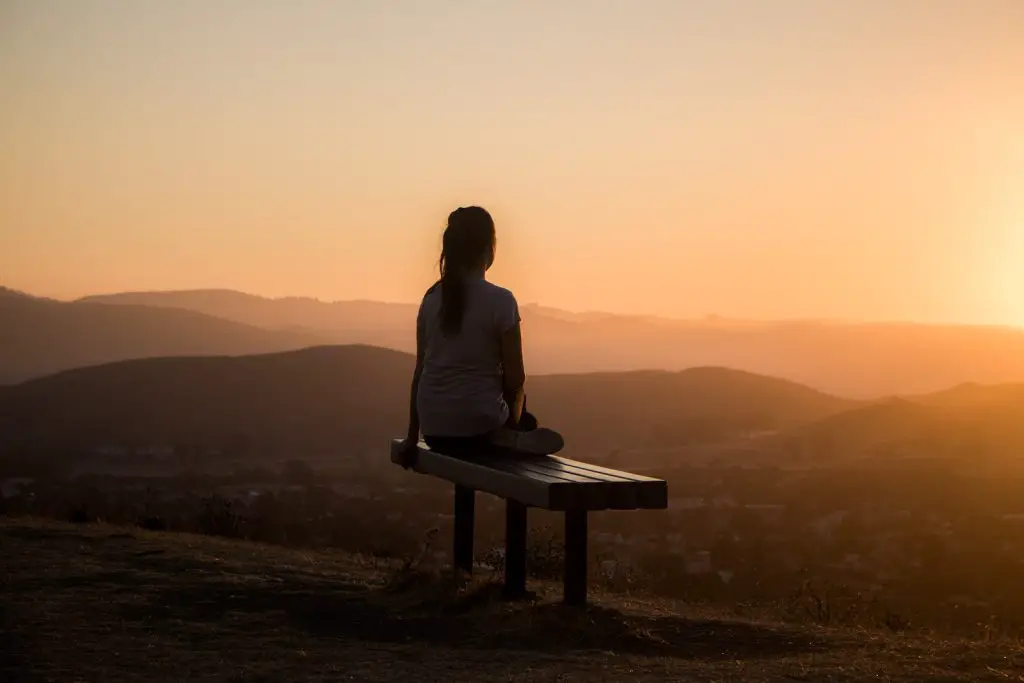
Vipassana Kammathana
Real life example:
A day in the life of a monk at Wat Sanghathan, Thailand, begins at 4am with a meditation practice called “Vipassana Kammathana.” This practice is based on the four foundations of mindfulness: awareness of body, feelings, thoughts, and phenomena.
The daily schedule runs from 4am to 9pm and includes morning and evening chanting sessions in one of the chapels.
Walking meditation
Walking meditation is said to improve concentration and focus. It is also said to be beneficial for your mental and physical health. Walking meditation is a great way to start the day and de-stress. Instead of focusing on your breathing, you focus on your walking, on your steps and foot.
Regular Daily Tasks, Temple Maintenance
The rest of the day is spent working on various tasks such as gardening, cooking, cleaning, studying or simply resting which is an important part of their life. In the evening, there is usually another period of meditation and prayer before bedtime.
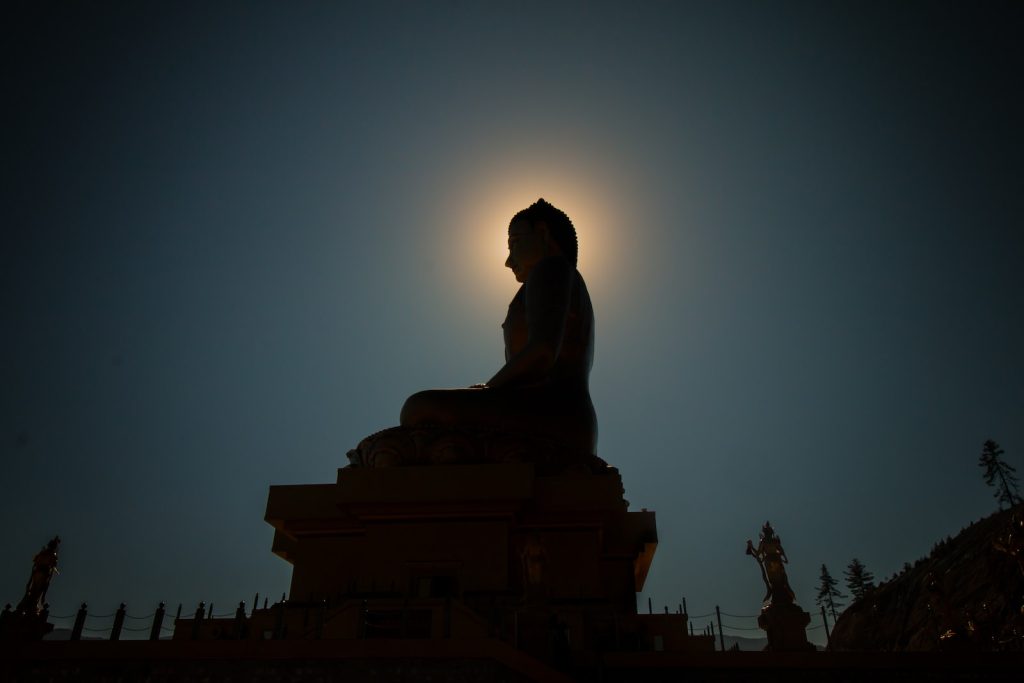
Bedtime meditation
Before sleep monks meditate for a few hours and go to bed early.
Why do Buddhists spend a lot of time in meditation?
Buddhists spend a lot of time in meditation because it helps them focus on the world around them and not just their personal problems. When you focus less on your personal problems, your mind becomes more calm and you develop inner de-cluttering. This allows you to see the world more clearly and understand the interconnectedness of all things.
Buddhists believe that meditation can help people to focus their mind and develop concentration, which can help them to reduce stress and anxiety. In addition, meditation can help people to improve their physical health by improving their mental well-being.
Meditation has many benefits, but can you meditate instead of sleep? Not really. Even when we compare Meditation vs Yoga Nidra it turns out that both practices can help improve sleep but trying to replace sleep with Yoga Nidra also won’t work as the practice does not give a full sleep cycle.
My experience:
Sleep is an important part of our health which is necessary for our overall well-being. It is important to get enough Zzz each night. Try to do Yoga Nidra during Brahma Muhurta time and start with a Brahma muhurta mantra!
What time do buddhist monks go to sleep?
Buddhist monks generally go to sleep around 10pm and wake up at 4am – these are the best times to sleep. This gives them around 6 hours of sleep, which is less than the average person. However, they make up for this by taking regular naps during the day.
The early wake-up time means that Buddhist monks have a lot of time to meditate and pray before the sun comes up. This can be a very peaceful and calming time of day, which helps to set the tone for the rest of their day.
How do monks sleep?
Monks devote many hours each day to practising meditation. This is a key part of their lives and helps them to focus on their spiritual journey. They also sleep for a few hours at night, which allows them to recharge and continue with their day-to-day activities. Monks sleep on the floor or sometimes upright.
Monks generally sleep for around six hours each night, although some may sleep for as little as four or as much as eight. They usually go to bed around 9pm -10pm and wake up between 3am and 5am.
Why do monks sleep on the floor?
Why do monks sleep on the floor? By sleeping on the floor, monks feel more grounded with nature and they are reminded of their humility and also there are many benefits like improved posture, less back pain.
How Long Do Monks Sleep?
Monks sleep less than an average person’s sleep time. But some people believe that monks sleep longer than the average person. The truth is that monks usually meditate long before bed and also after awakening. That is why some people believe that monks sleep longer than the average person – read more about how long do monks sleep.
How do monks wake up?
The average wake up time for a monk is 3am- 4am. Most monks begin their day with meditation and prayer. They then eat a light breakfast and spend the rest of the morning doing chores or studying.
Does the Dalai Lama meditate?
The Dalai Lama typically meditates for two hours each day, during which he focuses on a particular mantra or visualization. The Dalai Lama is a monk in the Gelugpa tradition of Tibetan Buddhism. He follows a strict daily routine that includes several hours of meditation.
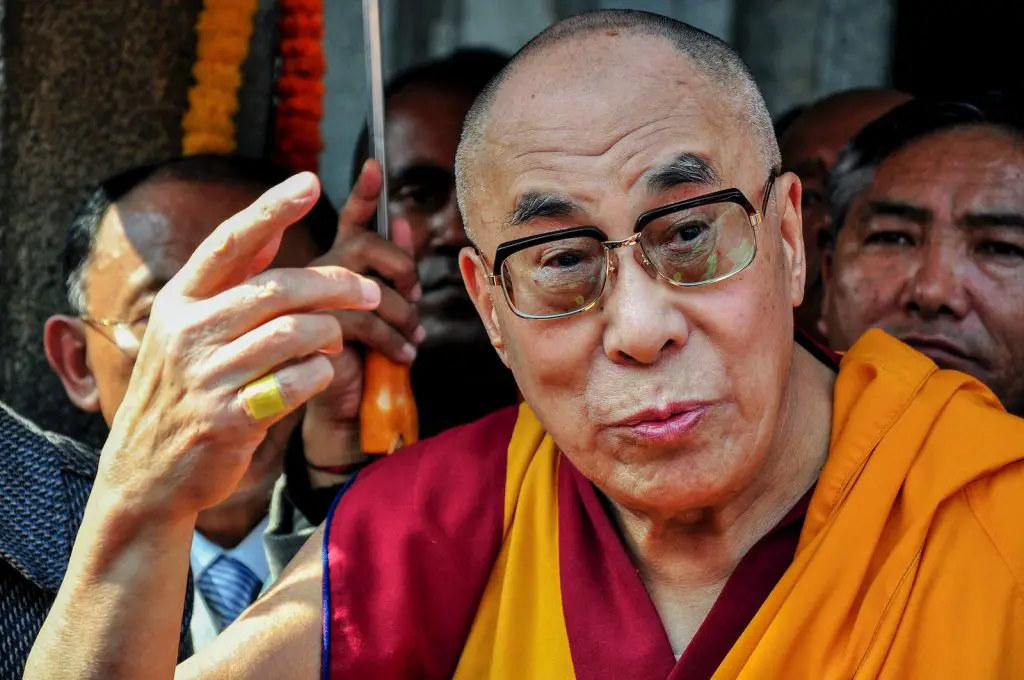
The Dalai Lama’s meditation practice is based on the Tibetan Buddhist tradition of Vajrayana, or “tantric” Buddhism. Vajrayana Buddhism emphasizes the use of rituals, mantras, and visualization practices to achieve enlightenment.
How do you know if meditation is working?
Meditation has been shown to improve various aspects of your life. People who meditate have been shown to be more patient, present, and have a better sense of well-being. They also need less sleep than those who don’t meditate.
Indeed, one of the best ways to know if meditation is working is to pay attention to your body. When you meditate, you become more aware of how your body reacts to different situations. You may also begin to notice habitual mental patterns and be able to break them through meditation.
What happens if I meditate everyday?
Meditation has been practiced for thousands of years and is thought to have many benefits. It is possible to reap the benefits of meditation even if you only have 10 minutes to spare. However, in order to see long-term results, it is important to be consistent with your practice.
How to start meditating
- Choose a comfortable place to sit or lie down, where you will not be disturbed for the duration of your meditation.
- Close your eyes and take a few deep breaths in and out, letting your body relax.
- Focus your attention on your breath, feeling the rise and fall of your chest or belly as you breathe in and out.
- If your mind wanders, simply bring your attention back to your breath without judgement or frustration – it’s perfectly normal for thoughts to arise during meditation!
- Continue meditating for as long as feels comfortable, then slowly open your eyes and begin moving again gently.
Is White Noise good for meditation?
Yes, white noise sounds can help to meditate and sleep. White noises in your home like ocean waves, rain, and thunder are said to be helpful for sleep and meditation.
Let’s do it!
Monks meditate for long periods of time because they believe it is beneficial for their mental and physical health. If you are interested in trying meditation, start with a few minutes each day and gradually increase the amount of time you meditate.
Let’s meditate daily! Shall we?
- 7 Grounding Exercises for Better Sleep Tonight - January 17, 2024
- What Are Grounding's Sleep Benefits? - January 17, 2024
- Maximize Sleep Quality With Seasonal Grounding Strategies - January 17, 2024

